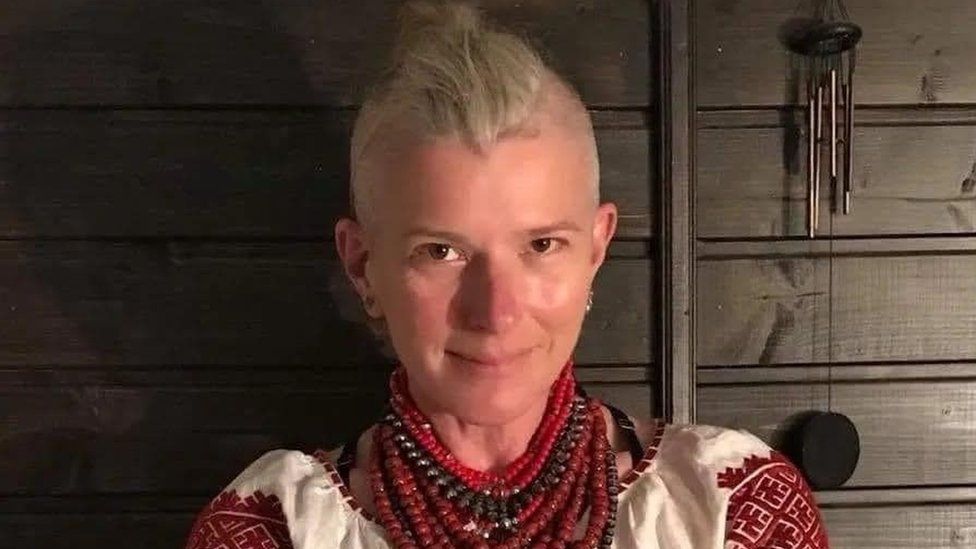ARTICLE AD BOX
By Patrick Jackson
BBC News

A file image of Yuliia Payevska
A Ukrainian paramedic who filmed casualties during the battle for the port of Mariupol has been freed after three months in Russian captivity.
President Volodymyr Zelensky gave no details when he announced the release of Yuliia Payevska, who is better known by the nickname Tayra.
He said only that she had been freed and was already home.
Russian media tried to portray her as an extreme nationalist - a description rejected by family and friends.
Footage she smuggled out of Mariupol showed Ms Payevska and her fellow medics tending to both Ukrainian and Russian wounded soldiers, according to the Associated Press which received the video.
The 80-day siege, during which thousands of civilians and combatants were killed and much of the city was destroyed, ended in the surrender of its Ukrainian defenders in mid-May.
Ms Payevska was captured along with a colleague on 16 March, the same day a bomb destroyed an air raid shelter inside a Mariupol theatre, reportedly killing hundreds of people, in an attack blamed on Russia.
She had handed AP over 256 gigabytes of footage recorded on her body camera, and the precious recordings had been spirited out of the city on 15 March by a journalist who had hidden it in a tampon.
AP describes the video as a "visceral testament to her efforts to save the wounded on both sides".
On Friday, President Zelensky said: "I can announce today that we managed to free from captivity Tayra... I am grateful to all who worked to achieve this result. Tayra is already home. We will go on working to bring everybody back."
The Ukrainian government had demanded the release of Ms Payevska, a former member of the Ukraine Invictus Games for military veterans.
The government argued that as a paramedic she was not a combatant and could not be held as a prisoner-of-war by Russia under international treaties which set out standards for the humanitarian treatment of captives.
Russian media reports accused her of being a member of the Azov Regiment, a unit of the Ukrainian army with roots in the far right. AP found no evidence of the claim, and quotes friends and colleagues as saying she had no links to Azov.
Ros Atkins on... Putin’s false Nazi claims about Ukraine
Russia invaded Ukraine on 24 February, saying it aimed to "de-Nazify" and "demilitarise" its former Soviet neighbour.
In the ferocious war which has followed, the UN says that more than 4,500 civilians have been killed and nearly 5,600 have been injured. Thousands of combatants have also been killed or injured on both sides.
Fighting has switched from the area around the capital Kyiv to the eastern regions where Russian-backed separatists already hold large stretches of territory, and the conflict has developed into a war of attrition dominated by artillery.
The West has responded to the invasion by imposing severe sanctions on Moscow and supplying weapons to Ukraine but has not intervened directly in the war against Russia, a nuclear superpower.

 2 years ago
86
2 years ago
86








 English (US) ·
English (US) ·